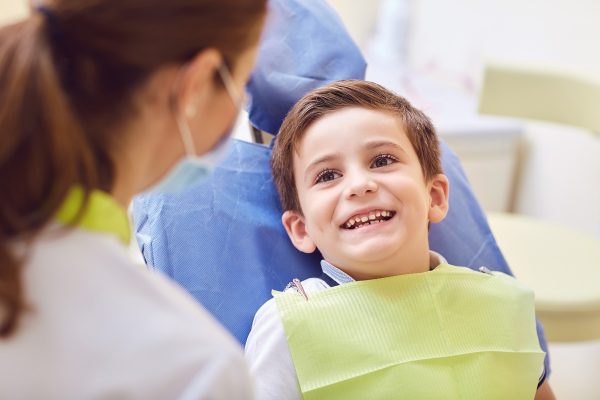Our goal at Lennon Dental & Associates is to create a welcoming environment and establish trust with children at a young age so that we can educate them on the importance of their teeth and form good oral habits at home. Our children’s dental clinic offers a wide range of services and treatments to help you care for and maintain your child’s oral health as they develop and grow. We encourage you to contact us with any pediatric dentistry questions you may have by calling our office at (781) 935-1630.
Pediatric Dentistry

Our Pediatric Dentistry Services Include:
- Infant oral health exams
- Digital x-rays and cleanings
- Orthodontic evaluation
- Care for dental injuries
- Sealants
- Fluoride treatments
- Diagnosis and safe treatment of dental disorders
- At-home dental care education
Pediatric dentistry (formerly Pedodontics/Paedodontics) is a branch of dentistry that treats children from infancy to adolescence. Pediatric dentistry is recognized as a specialty by the American Dental Association (ADA), which requires practitioners to complete two or three years of additional study after obtaining a general dentistry degree. The American Board of Pediatric Dentistry awards a special diploma at the conclusion of this course (Diplomate ABPD). Some pediatric dentists (pedodontists) choose to specialize in providing oral care to children with exceptional needs, such as autism, mental retardation, or cerebral palsy.
Child psychology is one of the most significant aspects of pediatric dentistry. Pediatric dentists are taught to establish a welcoming, enjoyable, and social environment for their patients, and to avoid using intimidating phrases like “drill,” “needle,” and “injection.” Childhood dental fears often persist into adulthood, so it is critical that children have favorable dental experiences and find their “dental home” as early as possible.
What Does a Pediatric Dentist Do?
Pediatric dentists perform a variety of vital tasks related to a child’s general oral health and cleanliness. They give a special emphasis on the proper care and maintenance of deciduous (baby) teeth, which are essential for good chewing habits, proper speech production, and the preservation of space for permanent teeth.
Other important functions include:
Education – Pediatric dentists emphasize the significance of keeping teeth strong and healthy by employing models, computer technology, and child-friendly terminology. They also give parents advice on disease prevention, trauma prevention, healthy dietary practices, and other areas of home cleanliness.
Monitoring growth – Pediatric dentists can predict oral problems and intervene immediately before they worsen by tracking growth and development throughout time. Working on earlier corrective treatment also helps to maintain a child’s self-esteem and promotes a healthy self-image.
Prevention – Helping parents and children develop healthy dietary and oral hygiene practices minimizes the risk of tooth decay later in life. Pediatric dentists can apply dental sealants and topical fluoride to young teeth, advise parents on thumb-sucking/pacifier/smoking cessation, and provide effective brushing and flossing demonstrations, in addition to providing checkups and dental cleanings.
Intervention – Pediatric dentists may explore the idea of early dental treatment with parents in some instances. Space maintainers, a nighttime mouth guard, or reconstructive surgery may be indicated in the case of an oral injury, malocclusion (bad bite), or bruxism (grinding).
Please call our office if you have any questions or concerns concerning pediatric dentistry.

